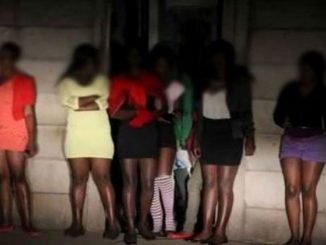
Kampala, Uganda | URN | Child rights activists in Uganda have expressed concern about the negative impact of DNA testing on the identities and citizenship of innocent children. The recent surge in DNA testing, particularly in cases where men discover that their presumed biological children are not related to them, has led to potential harm to the children involved.
Uganda, being a patriarchal society, links a child’s identity and clan to their father, so a change in paternity can result in a loss of identity for the child. Furthermore, the children are at risk of losing their citizenship since important documents, such as the National ID, require parental identification for registration.
Damon Wamara, the Executive Director of Uganda Children Rights Network, highlights the need for stakeholders to examine this crisis and seek child-friendly solutions to protect the rights of these children.
While DNA testing is a recent phenomenon in Uganda, traditional practices have long been used to determine lineage and parenthood. However, in the past, men who discovered they were not the biological fathers of their children often kept this information to themselves, protecting the rights of the children.
Wamara emphasizes that children should not be victimized solely based on their biological parentage, especially in an age where adoption is recognized and accepted.
Margaret Makhoha, Chairperson of the Parliament Forum on Gender and Children Affairs, calls for a reassessment of existing laws to ensure the protection of children amid this crisis. She condemns women who conceal the true biological fathers of their children, causing unnecessary distress to men who have dedicated their resources and love to their families.
Mondo Kyateka, Commissioner for Youth and Children at the Ministry of Gender, Labor, and Social Development, emphasizes that unless there are substantial doubts about a child’s identity, there is no need for parents to undergo DNA testing.
He urges elders to prioritize the rights and welfare of children over their own interests. Mondo suggests that if DNA testing is deemed necessary, it should be conducted shortly after birth before the father has invested significant time and resources in caring for and bonding with the child.
He calls upon the parliament to address this issue as a matter of national importance, ensuring the protection of children’s rights.
Meanwhile, the Uganda Police Force have warned health facilities, parents, bloggers, and journalists regarding the exposure of children involved in Deoxyribonucleic Acid Analysis (DNA) testing. According to the Police Spokesperson, Senior Commissioner of Police, Fred Enanga, numerous pictures and videos showing distressed children involved in DNA testing find their way into the public domain and social media.
Read Also: DNA samples link socialite Sipapa to 12 other robberies – Police
Enanga stated that the police are cautioning the public because these children, who are innocent in the paternity disputes, are being victimized without any understanding of their circumstances. He also pointed out that many facilities conducting these DNA tests lack genetic counselors to provide guidance and support to the affected parties after receiving the results.
This absence of counseling often leaves the children, fathers, or mothers in a state of confusion.
Police further emphasized the risks associated with approaching any medical center that advertises DNA testing services. They advised the public to only seek testing from certified DNA centers.
According to Simon Peter Mundeyi, the spokesperson for the Ministry of Internal Affairs, there has been a high demand for DNA testing as more men have discovered that the children they have been caring for are not biologically related to them.
Mundeyi says that some men have attempted to provide hair and nail samples from the children, but they are advised to physically bring the children to certified medical centers where blood or mouth swabs can be taken.
Mundeyi recounted a notable case from the previous year, where a man working in Europe took six children for DNA testing, and it was conclusively proven that none of the children were biologically related to him. The man had been financially supporting the children’s education in international schools, paying over US$1,500 (approximately 5.5 million Shillings) per child per term.
The Ministry of Internal Affairs and the police have warned individuals against being deceived into conducting DNA testing from their homes, stating that results obtained from non-certified health facilities would only lead to confusion and domestic violence.



